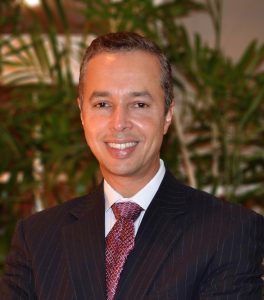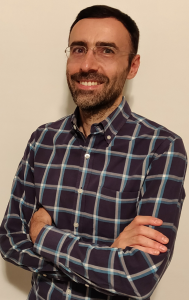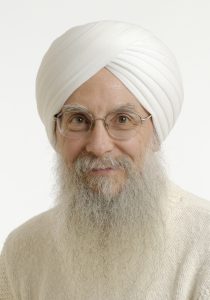
2018 Osher Pilot Grants Awarded
“Congratulations!” is in order for the three newest Harvard-affiliated research teams who have each been awarded an Osher Pilot Research Grant. $100,000 will be distributed between the three research teams to provide seed grants in support of their collaborative project proposals. These projects have been awarded early funding because of their innovative nature in the field of integrative medicine and consistency with the Osher Center’s thematic areas of musculoskeletal health, healthy aging, and mind-body exercise.
The Osher Center is pleased to announce the research teams who have been awarded for 2018. The principal investigators and titles of the awarded projects are as follows:
- Dr. Ahmed Tawakol, Massachusetts General Hospital, was awarded for “Impact of Stress Reduction on Inflammation and Atherosclerosis“;
- Dr. Sat Bir Singh Khalsa, Brigham and Women’s Hospital; and Dr. Jeff Dusek, Kripalu Center for Yoga and Health; were awarded for “A Mixed Methods Evaluation of Changes in Psychological Health Following a Yoga Program for Medical Residents“;
- and Dr. Miguel Alonso-Alonso, Beth Israel Deaconess Medical Center, was awarded for “Effects of Meal Environment Cues on Appetite and Metabolic Responses and the Mediating Role of Mind-Body States“.
More information on how to apply for an Osher Pilot Research Grant.
Project 1: Impact of Stress Reduction on Inflammation and Atherosclerosis
Specific Aims
- Investigate the effect of stress reduction on arterial inflammation. Hypothesis: Subjects who complete stress reduction will have greater reduction in arterial inflammation compared to those assigned to usual care.
- Investigate the effect of stress reduction on the relationship among regional brain activity, immune system activation, and arterial inflammation. Hypotheses: Reduction in arterial inflammation is mediated by decreased amygdalar activity and decreased immune system activation, in series.
Principal Investigator

Ahmed Tawakol, MD is Director of Nuclear Cardiology and Co-Director of the Cardiac MR PET CT Program at the Massachusetts General Hospital (MGH). He is Associate Professor of Medicine at Harvard Medical School. He obtained his medical degree from Stanford Medical School, then trained at Harvard’s Brigham and Women’s Hospital for Internal Medicine, Cardiology, and at MGH for Nuclear Cardiology.
Dr. Tawakol is a pioneer in PET/CT imaging of atherosclerotic plaques. His group developed and validated molecular imaging as a tool to assess atherosclerotic plaque inflammation in humans. Using the technique, he’s led over a dozen multi-center PET/CT (or PET/MR) imaging trials to evaluate novel cardiovascular disease treatment strategies. Additionally, his work leverages cutting-edge multi-system imaging to elucidate mechanisms that incite systemic inflammation and cardiovascular disease (CVD). Using this multi-modality imaging, his group has developed and validated methods to study organ systems that participate systemic inflammation, including hematopoietic organs, lymphoid tissues, adipose tissue, and the brain. His team recently provided the first in-human observation linking brain activity (within the amygdala, the area of the brain determining stress) to subsequent CVD events, thus providing mechanistic insights into how psychosocial stress promotes CVD. He is principal investigator on multiple studies funded by the NIH, industrial sponsors, and foundations.
Research Team
Co-Investigator: John Denninger, MD, PhD, Director of Research, Benson-Henry Institute for Mind Body Medicine, Massachusetts General Hospital; Associate Psychiatrist, Massachusetts General Hospital; Instructor, Harvard Medical School
Project 2: A Mixed Methods Evaluation of Changes in Psychological Health Following a Yoga Program for Medical Residents
Specific Aims
We aim to initiate and complete the first investigation of the effect of yoga (via RISE) on resident physicians’ psychological health using an RCT, mixed method, comprehensive approach measuring outcomes across several psychological and physiological systems.
- Explore the feasibility of whether a 6-week Kripalu yoga-based program (RISE) provided at the Brigham and Women’s Hospital would be acceptable to resident physicians.
- Examine whether the outcome measures were perceived as relevant to the participants’ work environment and were not burdensome as to the length and content of the battery via a post-study questionnaire.
- Assess the acceptability, feasibility, and efficacy of the yoga program through conducting formal standardized interviews with a subset of yoga participants.
Principal Investigators
- Sat Bir Singh Khalsa, PhD
- Jeffery Dusek, PhD
Sat Bir Singh Khalsa, PhD has conducted scientific yoga research since 2001 and is a practitioner/instructor of Kundalini Yoga as taught by Yogi Bhajan. He is Director of Research for the Kundalini Research Institute, and Assistant Professor of Medicine at Harvard Medical School. He has researched yoga for insomnia, stress, anxiety disorders, and workplace and school settings. He coordinates the annual Symposium on Yoga Research, is editor-in-chief of the International Journal of Yoga Therapy, author of the Harvard ebook Your Brain on Yoga, and chief editor of the medical textbook The Principles and Practice of Yoga in Health Care.
Jeffery Dusek, PhD joined Kripalu Center for Yoga and Health as the first ever, Chief Research Officer in late 2017. Dr. Dusek has over 20 years of experience leading research at innovative research and healthcare institutions. Recently, Dr. Dusek was appointed as an Investigator within Department of Psychiatry at Massachusetts General Hospital.
From 1998 to 2007, he was the Director of Research for the Mind/Body Medical Institute at the Beth Israel Deaconess Medical Center and an Instructor in Medicine of the Harvard Medical School. He was key to receipt of a multi-year grant from the CDC from which 3 seminal research studies were completed and numerous scientific articles were published. From 2007 to 2017, Dr. Dusek was the director of research at the Penny George Institute of Allina Health based in Minneapolis MN. Dr. Dusek was the Principal Investigator of a multi-year grant from the NIH which resulted in 13 manuscripts published in peer reviewed medical research journals.
Research Team
Marla Lipsyc-Sharf, MD, Resident Physician, Internal Medicine, Brigham and Women’s Hospital
Natalie Trent, PhD, Post-Doctoral Research Fellow, Kripalu Center for Yoga and Health
Lisa Conboy, ScD, Director of Research, New England School of Acupuncture at MCPHS University; Instructor in General Medicine, Osher Research Institute, Harvard Medical School
Darshan Mehta, MD, Medical Director, Benson-Henry Institute for Mind Body Medicine, Massachusetts General Hospital; Associate Director of Education, Osher Center for Integrative Medicine, Brigham and Women’s Hospital
Project 3: Effects of Meal Environment Cues on Appetite and Metabolic Responses and the Mediating Role of Mind-Body States
Specific Aims
- To investigate whether a meal served in an Asian-inspired manner with references to nature, seasonality and aesthetics can impact appetite, specifically the satiating power of the meal, and postmeal glycemic responses.
- To examine whether the effects of an Asian-inspired meal on satiating power and glycemic response are mediated by changes in physiological markers indicative of autonomic responses related to relaxation (heart rate variability, respiratory rate, electrodermal activity) and cognition (fixation patterns via eye-tracking).
Principal Investigator

Miguel Alonso-Alonso, MD, PhD, a physician-scientist with expertise in cognitive and clinical neuroscience, is Assistant Professor of Surgery at Harvard Medical School and Beth Israel Deaconess Medical Center (BIDMC), where he directs the Laboratory of Bariatric and Nutritional Neuroscience at the Center for the Study of Nutrition Medicine within the Department of Surgery.
Dr. Alonso-Alonso’s research aims to understand the neurocognitive basis of eating behavior and obesity, and to develop novel interventions based on targeting neurocognition. His work combines behavior, nutrition and clinical measures with cutting-edge noninvasive cognitive neuroscience tools, such as computerized testing, functional neuroimaging and neurotechnologies. Recent work from his lab includes the development of a programmable computerized meal table with capabilities to sense and display information during the course of a meal, the design of food-modified computerized neuropsychology tasks that are being used by local, national, and international research teams, and pioneering applications of noninvasive neuromodulation with tDCS in obesity.
Dr. Alonso-Alonso is also a Co-Investigator of the NIDDK-funded multicenter Look AHEAD Extension trial, responsible for the BIDMC part of the Boston site. The primary aims of this trial are to test legacy effects of the intensive lifestyle intervention delivered during the initial Look AHEAD trial on increased lifespan and reduced health care costs, while the secondary aim is to determine its effect on key dimensions of healthy aging. Among a number of educational and community contributions, Dr. Alonso-Alonso has been actively involved in the organization of innovative transdisciplinary events in the Boston area related to eating behavior, nutrition and obesity, such as Hacking Eating Tracking (2015): https://www.hackingeatingtracking.org/ and the Boston Obesity and Nutrition Datathon (2018): http://bondatathon.org/
Originally from Galicia, northwest Spain, Dr. Alonso-Alonso is board-certified in Neurology and also holds postgraduate degrees in Medicine/Psychiatry and Clinical Psychobiology (PhD summa cum laude, University of Barcelona), Clinical Neuroscience (MSc with distinction, University College London) and Clinical Investigator Training Program (MMSc, Harvard-MIT Division of Health Sciences and Technologies). Laboratory website: www.alonso-alonso-lab.org
Research Team
Co-Investigator: Jody Dushay, MD, Medical Director, Clinical Research Center, Beth Israel Deaconess Medical Center; Assistant Professor of Medicine, Harvard Medical School
Co-Investigator: Theodore C. Bestor, PhD, Reischauer Institute Professor of Social Anthropology; Director, Reischauer Institute of Japanese Studies, Harvard University









